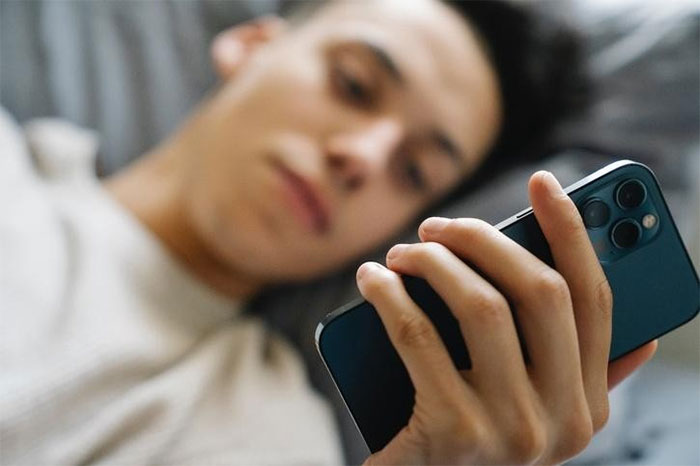Chinese researchers have recently discovered evidence confirming that smartphone addiction reduces human creativity.
If you are someone with innate creative abilities, it is best to turn off your smartphone. A new study using brain imaging technology shows that smartphone addiction diminishes creativity.
Specifically, a group of Chinese researchers assessed the impact of smartphone addiction on creativity by utilizing brain imaging technology to measure cortical responses to creative tasks.

Smartphone addiction syndrome has surged after the Covid-19 pandemic. (Source: Indiatimes.com).
The results of their study, recently published in the journal Social Cognitive and Affective Neuroscience, indicate that smartphone addiction negatively affects the brain’s creative capabilities. The prefrontal cortex and temporal lobe in individuals addicted to smartphones do not activate when asked to perform creative tasks.
It is no surprise that smartphone addiction syndrome has skyrocketed after the Covid-19 pandemic, which forced over 7 billion people worldwide to stay indoors. Researcher Xinyi Li and colleagues at Shaanxi Normal University aimed to explore which areas of the brain are responsible for the decrease in creativity.
All 48 participants in the study were students from Shaanxi Normal University. They were identified and grouped using the Smartphone Addiction Scale (SAS). 24 participants scored high on the SAS and became the experimental group, while the remaining participants scored lower and served as the control group.
In the first phase of the study, scientists employed the “Alternative Uses Task”, where each participant was given a common object and had 30 seconds to name alternative uses for that object. They were required to remember the objects and their top two uses for later recall.
In the second phase, neuroimaging was used to study what the brain was doing while participants responded to the “Alternative Uses Task.”
The researchers found that smartphone addicts scored lower in fluency, flexibility, and originality. The prefrontal cortex and temporal lobe showed less activity in these individuals.
The research team concluded: “We found that smartphone addicts exhibited reduced cortical activation and functional connectivity in the prefrontal cortex and temporal cortex. This hampers their ability to overcome semantic constraints and establish novel associations during the creative idea formation process.”


















































